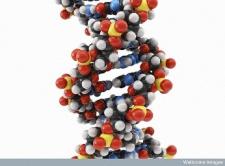Ethical Questions Loom Over Efforts to Make a Human Genome from Scratch
By Antonio Regalado,
MIT Technology Review
| 05. 25. 2016
The biggest beneficiary of a plan to fabricate a human genome from scratch could be a Massachusetts startup called Gen9 that has close ties to the authors of the still-secretive proposal.
Two weeks ago, more than 130 scientists, ethicists, and government funding officials met behind closed doors at Harvard University to discuss a follow-up to the Human Genome Project—one that would write a genome rather than read it. The event, named HGP Write, was meant to rally interest around the idea of synthesizing all six billion DNA letters of a human genome and using the results to “boot up” a cell.
That grand goal will require new technology as well as lots and lots of DNA. “We are going to be one of the companies that is going to make this possible,” says Kevin Munnelly, the CEO of Gen9, which was started in 2009 to manufacture DNA strands and whose founders include George Church, the visionary Harvard Medical School geneticist at the center of the genome-writing plans. “I don’t think anyone can make as much DNA as we can with six...
Related Articles
By Russ Burlingame, Comicbook | 07.23.2024
Colossal Laboratories and Biosciences, a biotech company that's putting together plans to orchestrate the de-extinction for animals like the dodo and the wooly mammoth, made some waves on Reddit recently when they petitioned the United Federation of Planets -- the...
By Andrea Chang, Los Angeles Times | 06.04.2024
Peter Diamandis, a week away from turning 63, bounds out of a Starbucks on a recent morning with a cup of decaf, his daily medley of 70 supplement capsules in his pocket and, tucked under his left arm, a box...
By Shelly Fan, Singularity Hub | 05.31.2024
We all know the drill for reproduction—sperm meets egg.
For the past decade, scientists have been pushing the boundaries of where the two halves come from. Thanks to induced pluripotent stem cell technology, it’s now possible to scrape skin cells...
By Vardit Ravitsky and Louise King, Scientific American | 06.01.2024
Artificial wombs are moving from the realm of science fiction to possible trials with severely premature human babies. We are excited about the great potential benefits of this technology; however, with fetal rights now a political front in the...




